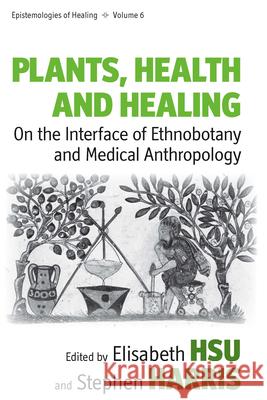Plants, Health and Healing: On the Interface of Ethnobotany and Medical Anthropology » książka
Plants, Health and Healing: On the Interface of Ethnobotany and Medical Anthropology
ISBN-13: 9781845450601 / Angielski / Twarda / 2010 / 330 str.
Plants, Health and Healing: On the Interface of Ethnobotany and Medical Anthropology
ISBN-13: 9781845450601 / Angielski / Twarda / 2010 / 330 str.
(netto: 480,17 VAT: 5%)
Najniższa cena z 30 dni: 498,70
ok. 30 dni roboczych
Dostawa w 2026 r.
Darmowa dostawa!
Plants have cultural histories, as their applications change over time and with place. Some plant species have affected human cultures in profound ways, such as the stimulants tea and coffee from the Old World, or coca and quinine from South America. Even though medicinal plants have always attracted considerable attention, there is surprisingly little research on the interface of ethnobotany and medical anthropology. This volume, which brings together (ethno-)botanists, medical anthropologists and a clinician, makes an important contribution towards filling this gap. It emphasises that plant knowledge arises situationally as an intrinsic part of social relationships, that herbs need to be enticed if not seduced by the healers who work with them, that herbal remedies are cultural artefacts, and that bioprospecting and medicinal plant discovery can be viewed as the epitome of a long history of borrowing, stealing and exchanging plants. Elisabeth Hsu is Reader in Social Anthropology at the University of Oxford, where she has convened its master's courses in medical anthropology since 2001. Based on her earlier studies in biology (botany), linguistics and sinology, she has published widely on the history and anthropology of Chinese medicine. Stephen Harris was awarded a Ph.D. in plant systematics from the University of St. Andrews in 1990. He has been the Druce Curator of Oxford University Herbaria since 1995 and has published over 50 peer-reviewed papers on genetics and systematics associated with the evolutionary consequences of plant-human interactions.
Plants have cultural histories, as their applications change over time and with place. Some plant species have affected human cultures in profound ways, such as the stimulants tea and coffee from the Old World, or coca and quinine from South America. Even though medicinal plants have always attracted considerable attention, there is surprisingly little research on the interface of ethnobotany and medical anthropology. This volume, which brings together (ethno-)botanists, medical anthropologists and a clinician, makes an important contribution towards filling this gap. It emphasises that plant knowledge arises situationally as an intrinsic part of social relationships, that herbs need to be enticed if not seduced by the healers who work with them, that herbal remedies are cultural artefacts, and that bioprospecting and medicinal plant discovery can be viewed as the epitome of a long history of borrowing, stealing and exchanging plants.Elisabeth Hsu is Reader in Social Anthropology at the University of Oxford, where she has convened its masters courses in medical anthropology since 2001. Based on her earlier studies in biology (botany), linguistics and sinology, she has published widely on the history and anthropology of Chinese medicine.Stephen Harris was awarded a Ph.D. in plant systematics from the University of St. Andrews in 1990. He has been the Druce Curator of Oxford University Herbaria since 1995 and has published over 50 peer-reviewed papers on genetics and systematics associated with the evolutionary consequences of plant-human interactions.











